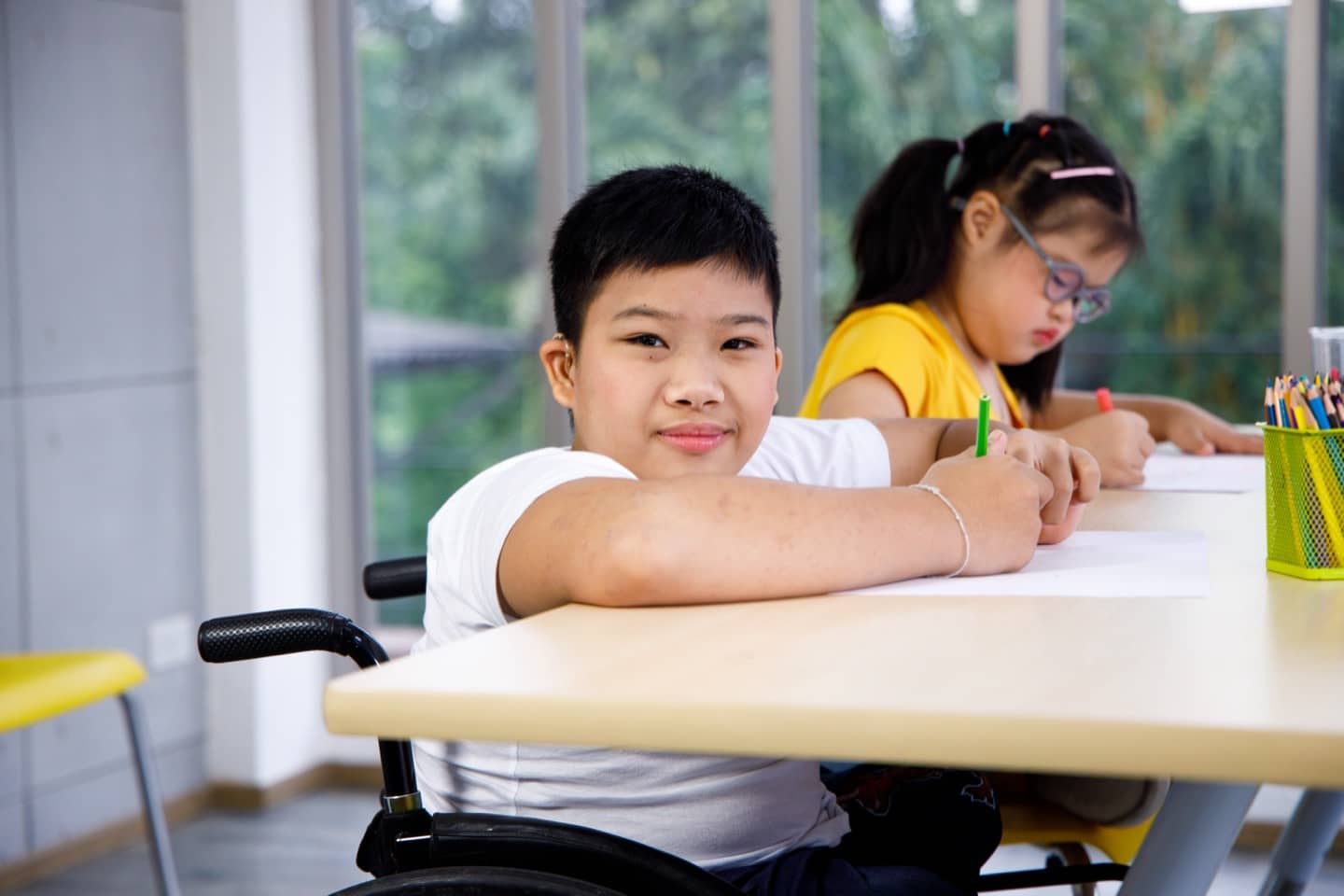Navigating the Path Towards Inclusive Education
 As we continue to celebrate the observance of Developmental Disabilities Awareness Month, a time dedicated to fostering understanding, acceptance, and inclusion for individuals with developmental disabilities. This is the first of the three-part series of articles to raise awareness about Developmental Disabilities.
As we continue to celebrate the observance of Developmental Disabilities Awareness Month, a time dedicated to fostering understanding, acceptance, and inclusion for individuals with developmental disabilities. This is the first of the three-part series of articles to raise awareness about Developmental Disabilities.
Amidst the various facets of advocacy and support, one crucial aspect that warrants exploration is the journey toward inclusive education. This journey encapsulates the transformation from segregated classrooms to inclusive environments, signifying progress, challenges, successes, and ongoing efforts to ensure equitable access to education for all.
The evolution of inclusive education practices is a testament to society’s shifting perceptions and values regarding diversity and inclusion. Historically, individuals with developmental disabilities were often relegated to separate, isolated educational settings, perpetuating stigmatization and limiting opportunities for social integration and academic growth. However, over the years, significant strides have been made to dismantle barriers and embrace a more inclusive approach to education.
One of the defining characteristics of inclusive education is its emphasis on diversity and the recognition of every individual’s unique strengths, abilities, and potential contributions. Inclusive classrooms prioritize the creation of supportive learning environments where students of all abilities can learn alongside their peers, fostering mutual respect, understanding, and collaboration.
However, the transition to inclusive education is not without its challenges. Educators, administrators, and policymakers encounter logistical, financial, and attitudinal hurdles along the way. Providing appropriate support services, adapting instructional strategies, and ensuring physical accessibility are just a few of the considerations in cultivating inclusive learning environments. Moreover, fostering a culture of acceptance and understanding among students, educators, and the broader community requires ongoing education, advocacy, and dialogue.
Despite the obstacles, the benefits of inclusive education are manifold. Research indicates that inclusive classrooms promote positive academic and social outcomes for students with and without disabilities. Inclusive education fosters empathy, promotes diversity appreciation, and prepares students for a more inclusive society. Beyond the academic realm, inclusive education cultivates a sense of belonging and self-worth, empowering individuals with developmental disabilities to pursue their aspirations and contribute meaningfully to their communities.
The journey toward inclusive education is a collaborative endeavor that involves the concerted efforts of various stakeholders – educators, families, advocates, policymakers, and community members. Through collective action and commitment, progress continues to be made in expanding access to inclusive education and dismantling systemic barriers that hinder inclusion and equity.
As we commemorate Developmental Disabilities Awareness Month, it is imperative to reflect on the strides made in advancing inclusive education and acknowledge the work that lies ahead. Embracing diversity, promoting equity, and championing inclusion are not only moral imperatives but also essential elements of a just and compassionate society.
In conclusion, the evolution of inclusive education underscores the transformative power of education in fostering inclusion, dignity, and opportunity for individuals with developmental disabilities. By championing inclusive education practices, we reaffirm our commitment to building a more inclusive and equitable world where every individual is valued, respected, and empowered to thrive.
About the APILO’s Elder and Disability Rights Project:
APILO’s Elder and Disability Rights Project provides legal services in a variety of areas to assist elders and individuals with disabilities to receive public benefits and live a life free from abuse. The Elder Team works to both to prevent abuse towards elders and people with disabilities and to assist survivors of abuse. We work closely with senior centers, churches, and senior meal sites to keep our services accessible. With a team of exemplary attorneys and dedicated staff, the team provides a wide range of legal services, including naturalization assistance, other immigration cases, elder abuse, estate planning, eviction defense, conservatorship, guardianship, and restraining orders to name a few.






